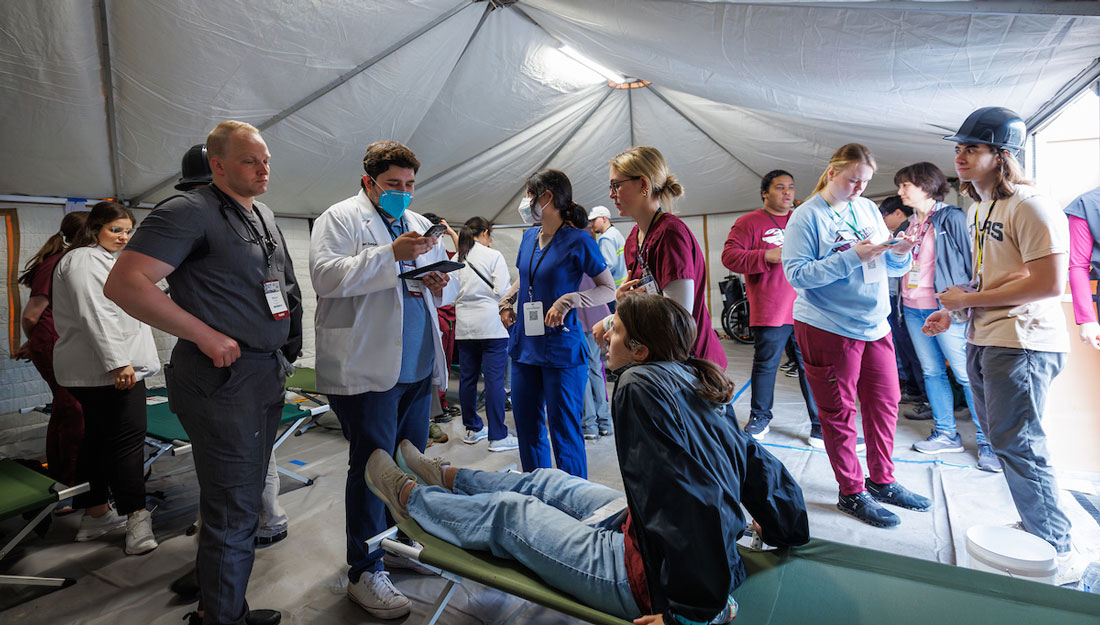IBT researchers find protein essential in death of heart muscle cells
(HOUSTON, TX) – Researchers at the Texas A&M Health Science Center Institute of Biosciences and Technology at Houston have identified a key factor in human heart failure that may also be successful against hypertension and erectile dysfunction.
A study currently available online in the Proceedings of the National Academy of Sciences and in an upcoming issue of the journal describes what causes the slow death of heart cells to occur and lead to heart failure. It also indicates how this process can be stopped.
“We found a new drug target that may block the onset of human heart failure and may also be effective against pulmonary hypertension, vascular hypertension and erectile dysfunction,” said Robert Schwartz, Ph.D., interim director of HSC-IBT and co-senior author.
The human genome contains about 500 to 1,000 protein kinase genes that regulate many aspects controlling cell growth, movement and even cell death. ROCK-1, a protein kinase, is super-activated following its cleavage (split) with a caspase, an enzyme involved in the death of heart cells in a process called “apoptosis,” or programmed cell death.
Earlier studies showed the caspase that clips ROCK-1 is also associated with many kinds of heart failure, the leading cause of morbidity and mortality in the United States. Nearly 5 million Americans are slowly dying with heart failure, and 550,000 new cases are diagnosed each year, the American Heart Association reports.
The precise relationship among the many factors controlling apoptosis in cardiac overload, hypertrophy (abnormal heart muscle thickening) and failure may be dependent on basic triggering factors, Dr. Schwartz said. And, in their study of ROCK-1 in mice, the researchers learned triggering apoptosis is essential in the programmed death of heart muscle cells.
“Once the process begins, it gathers speed, like a snowball rolling downhill,” Dr. Schwartz said. “Consequently, by inhibiting or removing ROCK-1 through therapeutics, heart failure and related diseases could someday be reduced. The therapeutic potential of these observations is attractive because inhibition of ROCK-1 appears relatively safe.”
Two other study authors agree.
“Our study demonstrates that ROCK-1 activation promotes cardiac cell death and is also activated by programmed cell death pathways,” said Mark Entman, M.D., professor at the Baylor College of Medicine.
“Currently, there is no drug specific for ROCK-1 and other ROCK-like kinases,” said Michael Schneider, M.D., professor at the Baylor College of Medicine. “But, our report should drive interest in developing a selective ROCK-1 inhibitor.”
Other PNAS study contributors were Jiang Chang, Ph.D., assistant professor, and Viraj Shah, postdoctoral student, with the HSC-IBT; Min Xie, Ph.D., postdoctoral researcher with the Baylor College of Medicine; and Lei Wei, Ph.D., Herman B. Well Center for Pediatric Research at the Indiana University School of Medicine. Grants from the American Heart Association and the National Institutes of Health supported this research.
The Texas A&M Health Science Center provides the state with health education, outreach and research. Its six components located in communities throughout Texas are Baylor College of Dentistry, the College of Medicine, the Graduate School of Biomedical Sciences, the Institute of Biosciences and Technology, the Irma Lerma Rangel College of Pharmacy, and the School of Rural Public Health.
Media contact: media@tamu.edu


